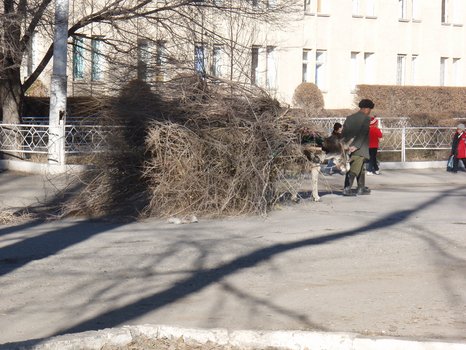
Photo: Maria Louw
Maria Louw: Elderness in the Absence of the Young in Muslim Kyrgyzstan
In Kyrgyzstan, a good life as an elder has traditionally been defined in relation to the extended family. As they come of age, people learn to perform 'elderliness', showing high moral integrity and authority vis-a-vis younger relatives, who, in turn, are expected to treat the elderly with care and respect. Such relations between the generations are perceived to be an ethnic, and religious, marker, and notions of elderliness are thus intimately bound up with notions of being Kyrgyz and being Muslim. In recent years, however, due to large-scale migration of the working age population, more and more elderly have been left behind by their families, bereaving them of the intimate others in relation to whom elderliness is traditionally experienced, performed and acknowledged. This project builds on longitudinal studies of notions of, and experiments in, the good life in Kyrgyzstan and will explore how aging is lived and experienced in the absence of younger family members: what does it mean to have an aging body that is not cared for by relatives and to dwell in a home haunted by the absence of the young? What does a good life as elderly mean under these circumstances, and how do people strive to achieve it?